Do if Statements Continue Evaluating After Finding True

Some so-called facts have been around for so long, we automatically accept them as being true — like a blue sky — without questioning the science behind the myths. Whether you heard these untruths from your friends at school or your parents or grandparents, it's time to do some autocorrecting to get to the truth.
Let's take a look at some of the most popular "facts" that aren't actually true. Chances are good that some of the things you believe to be true are actually completely false.
Death by Penny
The question is a familiar one. If you dropped a penny from the top of the Empire State Building, and it hit someone on the head, would the impact be enough to kill them? As the myth goes, yes, it would kill them, making it the unluckiest penny in the world to find. However, science is here to prove this claim wrong.

The velocity of the penny by the time it fell that far would undoubtedly be quite high, but it wouldn't be enough to kill them — although it would probably hurt quite a bit. So, you don't need to worry about sudden death by coin if you happen to be walking by the Empire State Building any time soon.
Whether you like Iron Maiden's music or not, you can probably agree that the torture device the band is named after — a large, coffin-shaped box with spikes inside for impaling victims closed inside it — is on the more horrific end of the torture spectrum. Of course, for all intents and purposes, it didn't actually exist, at least, not in the way it has been portrayed.

Medieval torturers didn't use these boxes to gruesomely kill their victims. In fact, it was essentially a hoax. A man in the 18th century was determined to prove how much better life was in his time compared to the Middle Ages, so he created the device to scare people and "prove" the Middle Ages were much darker than their current time. Not crazy at all, right?
Napoleon Bonaparte's Short Height
This may be one of the most popular incorrect facts in history. Napoleon Bonaparte was not short — at least not for the time. Part of the confusion comes from different measuring systems. Using the French system at the time, he measured 5 feet 2 inches, but using the English system, he measured 5 feet 6 inches, making his height slightly above the average height for men in that time period.

The myth may also come from his choice of companions. He chose particularly tall soldiers for his personal guard and other special assignments for obvious security reasons. As a result, his height may have seemed short to observers.
Waiting Period for Missing Persons
If you watch TV shows, movies or even media newscasts, you probably think you have to wait a certain amount of time before filing a missing person report with the police. It's generally assumed to be somewhere between 24 and 48 hours. This isn't true.

In fact, there is no waiting period. If you suspect someone is missing, you can file a report immediately. This myth might be useful for creating drama on TV shows, but it's a terrible myth for people to believe when they are concerned about their loved ones.
Fresh Produce Is More Nutritional Than Frozen Produce
One common "fact" says that fresh produce has more nutritional value than its frozen counterpart. Although this may seem logical and fair — eating carrots fresh from your local farmer's market does seem a lot healthier than microwaving some frozen carrots at home — it's not necessarily true.

Research has shown that once a fruit or vegetable is picked, it begins to lose nutritional value immediately. By the time fresh produce reaches grocery stores, quite a bit of the nutritional value has already been lost. Frozen produce, however, is processed and frozen after harvesting. If this process takes place quickly enough, the produce could be frozen more quickly than it arrives on grocery shelves, giving frozen produce better nutritional value in this scenario.
Brown Bread Is Healthy Bread
For those of you trying to eat a little healthier, the idea that brown bread is inherently healthier than white bread is tempting to believe. Just choose the right color in the bread aisle, and you're good to go! Unfortunately, it's not actually that easy.

Brown bread can be just as unhealthy as white bread if you don't watch out for bad ingredients. When selecting which bread to purchase, check the list of ingredients to see if whole wheat or wholemeal flour are the first ingredients. If not, the bread probably isn't that healthy, and you should look for a different brand.
Most of Your Body Heat Is Lost Through Your Head
Everyone has probably experienced this one: It's winter, and your mom makes you put on the warmest beanie you can find to keep your head — and, therefore, your body — toasty and warm. It's a fairly common belief that most of your body heat is lost through the top of your head. Just keep your head warm to keep your body warm — but it's just not true.

You really only lose about 7% to 10% of your body heat through the top of your head, which is also generally the normal amount for any part of your body that is exposed. So, wear a beanie to conserve that 10%, but don't rely on it to keep you from getting cold.
Catching a Cold with Wet Hair
Related to the myth of losing most of your body heat through your head, this is another myth that seems to have lasted through the ages. Your parents probably warned you that going outside in the winter with wet hair was a great way to catch a cold. Guess what? Your mom was wrong about something.

You might feel a heck of a lot colder with wet hair, of course. Depending on where you live, you might even walk back inside with a few icicle decorations in your hair, but you won't catch a cold from having wet hair. A cold is caused by a virus, so if you don't catch the virus, you can't have a cold.
Blind as a Bat
This familiar expression has lasted for years, steadily making its way into everyday vernacular, and no one seems to question its logic or truth. Well, let's put a stop to that right now. Contrary to popular belief, bats are not actually blind.

Their eyes may be small, and they may be nocturnal, but they can see just fine. According to one bat expert (yes, that's a job, although no one ever mentioned it in career counseling), some of the larger species of bats can actually see up to three times better than humans can see. Good thing they're not really vampires.
Five-Second Rule
People follow many etiquette rules when it comes to food, and everyone probably knows this one. If you drop a piece of much-desired food on the ground, it will still be safe to eat as long as you pick it up within five seconds of it hitting the ground. Thank goodness there's a way to avoid the tragic loss of something delicious, right?
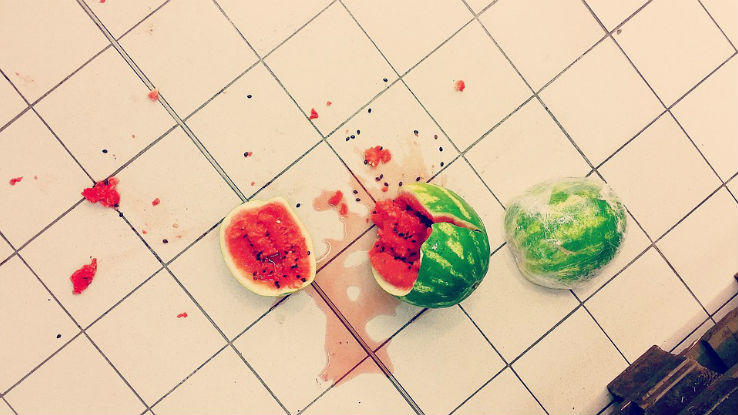
Wrong. Experts say the amount of time a piece of food spends on the ground doesn't have much to do with how many germs it picks up. What does matter is the condition of the floor (just how germy and dirty is it?), the amount of moisture in the food and the surface area of the food.
Einstein Flunking Classes
As one of the most famous academics in history, Einstein seems to generate an obscene number of stories. It's not his fault, of course. The stories seem to appear as if by magic and then just stick around. One of the more popular myths is that he failed some of his math classes.

Although it may sound like a lovely story about a genius who failed as a boy but went on to become a math and science wizard, it's just not true. He actually did very well in his classes, although his teachers didn't think he was anything special. It's true that he wasn't a fan of school, but it was because of the authoritarian nature and the rigid rules.
Twinkies Are Forever
This myth seems to grow in popularity in direct relation to how many zombie movies are coming out. After all, if the world is on the brink of an apocalyptic event and you need to find an easy to store food that won't go bad, you will probably swallow your pride and stock up on anything that fits the bill — including Twinkies. On the other hand, although Twinkies may seem like they would last forever, they actually won't.

In fact, one expert contends that Twinkies really aren't optimal to eat once they've been on the shelf for more than 25 days. So, they might not be the best food to have around during the apocalypse, after all. Considering they have almost no nutritional value, you should really take that as good news.
Sharks Are Immune to Cancer
It might sound a little bizarre, but a lot of people actually think that sharks are immune to cancer. This rumor likely started because shark skeletons are primarily cartilage instead of bone, and cartilage inhibits, to a certain extent, the growth of blood vessels, which are crucial to cancer cells' ability to thrive. This could make people believe sharks are immune.

The next time you're at a party and someone throws out this fun fact, you can set the scientific record straight and let them know that sharks are not, in fact, immune to cancer. It may be rare, but scientists have found tumors in sharks.
Toilet Seats Are Loaded with Germs
Okay, surely this one can't be a lie. It makes perfect sense that toilets would be dirty, right? Toilet seats should definitely be full of germs — people put their bare booties on them! — but that's not actually the case. The University of Arizona actually conducted a study to test this myth, and they discovered that toilet seats are actually relatively clean.

This may seem contradictory, but it actually makes perfect sense. After all, because everyone thinks toilet seats are so gross and dirty, most people spend a lot of time washing and disinfecting them before sitting down. That means most of the germs you're so afraid of are disinfected pretty regularly. In fact, the study found that cell phones are up to 10 times dirtier than toilets, thanks to all the germs they pick up from dirty hands. Forget about the toilet — when was the last time you cleaned your phone?
Shaving Makes Your Hair Thicker
Unfortunate as it may be, this myth is fairly popular, especially among younger people, and it causes widespread fear of out-of-control hair growth from shaving. The story goes that when you shave, your hair grows back thicker than it was before, but this simply isn't true. Science is ready and waiting to fend off such ridiculous claims.
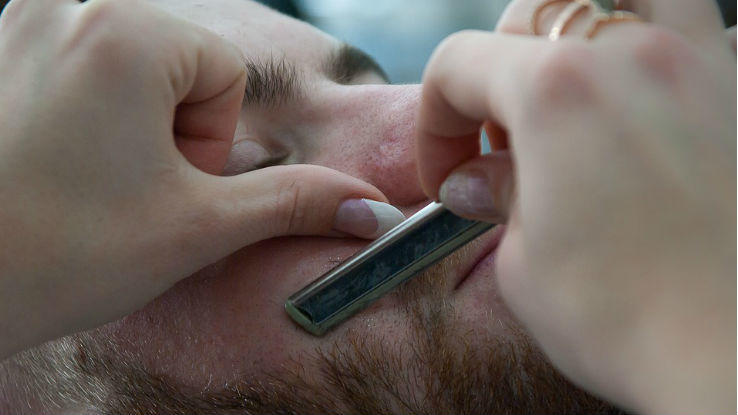
Rather like a sharpened pencil, hair sort of tapers toward the end, making it thinner at the end than it is at the root. That means when you shave or trim it, it looks thicker than it looked before, although it's really the same thickness. Remember: Appearances aren't everything.
Chameleons Change Color to Blend In
It's fun to imagine a chameleon playing along and changing color every time you put it in front of a new background, blending in easily as it switches from green to orange to purple. The reality is a little less dramatic than that. The changing colors of a chameleon are actually heavily influenced by the creature's mood, temperature and the light that's hitting it.

If a chameleon is a pale green color, for example, it's probably feeling fairly neutral and calm, while if it's yellow, that probably means it's angry. This version is a little less fun, but the fact that chameleons change colors at all is still pretty amazing.
Cancer-Causing Deodorant
One "fact" in particular causes some (well-earned) fear. Some deodorants may increase the risk of breast cancer in women, due to certain chemicals entering the body through small cuts in the skin or through the pores themselves. If that was true, it would be a good reason to worry about your antiperspirant and go natural. However, this isn't actually the case.

A specialist in breast cancer from the American Cancer Society stated that there is absolutely no risk of antiperspirants causing or increasing the risk of breast cancer. Thank goodness it's false because the natural options really don't work.
Salty Water Boils Faster
When you're making pasta, your recipe will probably call for you to put some salt in the water as you're waiting for it to boil. Apart from seasoning the noodles themselves — because salt is good on everything, you know, even if it's not good for you — the theory behind this is that it's supposed to make the water boil faster.

This won't actually make much of a difference. Experiments have shown that adding salt can make a slight difference in boiling time, but you would have to add a lot of salt to decrease the boiling time by a noticeable amount.
Seeing Red
Bullfighting may be morally frowned upon in this day and age, but it still happens in various parts of the world. In addition to being cruel, it also perpetuates a myth about bulls. The waving red flag or cape is an iconic part of bullfighting, presumably because bulls go absolutely crazy when they see the color.
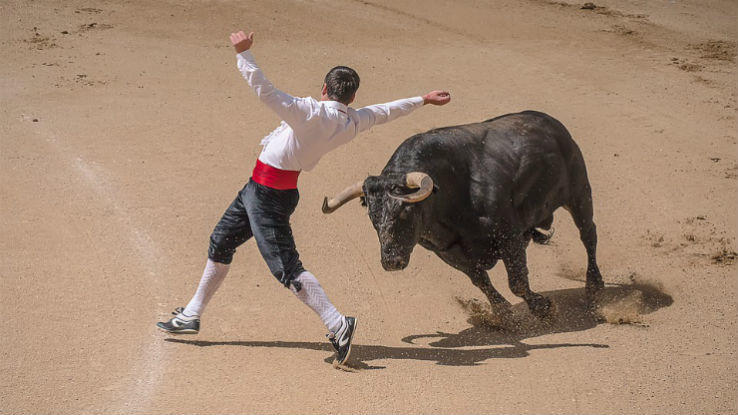
In truth, it's not actually the color red that annoys them. Rather, it's the motion of the waving flag that stirs them up into a frenzy. In other words, the bullfighter being a pest is what's annoying. Another related myth suggests that bulls are vicious creatures, which they aren't. They're actually very sweet unless they're provoked.
Not-so-Visible from Space
Ever since humans forged their way into space, people have asked a lot of questions and learned a lot of things about the world beyond this planet. One of the most famous truths you may remember learning from these forays into the galaxy is that astronauts can see the Great Wall of China from space.

As cool as this sounds, it's not true. As one astronaut puts it, the wall is simply too narrow to see from that distance. Plus, it follows the natural landscape, so any details that would possibly be visible to the naked eye from space would be lost to the natural contours of the geography in that area.
Cracking Your Knuckles Leads to Arthritis
If you have a habit of knuckle-cracking, you've probably had at least one person tell you that cracking your knuckles (or any of your other joints as well) will damage them and cause arthritis. While it might sound like a logical possibility — that cracking sounds awful! — the science behind it just doesn't add up.
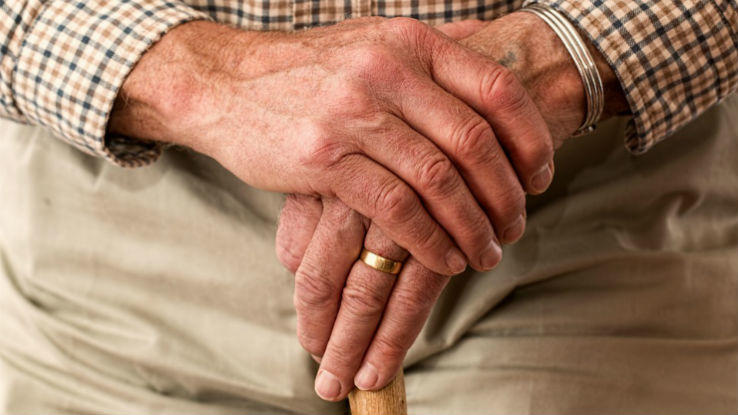
According to a study from Harvard's medical school, what could actually occur is that people who chronically crack their knuckles could experience reduced grip strength and swollen knuckles over time. So, cracking your knuckles (or fingers, ankles or whatever other joints you crack) won't give you arthritis in the long run, but you still might want to think twice before making it a habit.
The Highest Mountain
This may not be the most pressing untruth to correct, and it probably doesn't come up in conversation very often, but the principle of tossing out false truths demands this myth be corrected. In most circles, Mount Everest is labeled as the tallest mountain in the world. In one respect, it's true, but it's technically incorrect.

Mount Everest is the tallest mountain when measured from sea level to its summit, but another mountain — Mauna Kea in Hawaii — is the tallest mountain from its base to its summit. The confusion occurs because most of the mountain is underwater, and the underwater portion isn't usually included in the measurement.
Sleepwalkers Should Stay Asleep
Sleepwalking is a lot more common than you might think. According to some studies, up to 40% of children experience some form of sleepwalking, although most of them grow out of it as they get older. You've probably heard that you're not supposed to wake sleepwalkers up because it could cause a violent shock that is both upsetting and potentially dangerous.

This isn't something you need to be concerned about. In fact, you probably should wake them up and get them back into bed so they don't walk into something or trip and hurt themselves. The worst thing that could happen is they might get a little confused, but nothing serious is going to go wrong if you wake them up.
Don't Swim After Eating
This so-called fact is a hugely popular one that you will hear constantly when summer rolls around. You munch on some lunch with your friends, decide it's a little too warm for your liking so you start to hop in the water to cool off. Your friends warn you not to go in the water right away (just like your mom probably did when you were younger). It's supposed to be dangerous, but that's just nonsense.

A doctor will tell you the most dangerous thing you should worry about is a minor cramp, certainly nothing that would put you in danger of drowning. Turns out, you can eat all the ice cream and sandwiches you want and jump right into the pool for a swim.
Alcohol Warms You Up
People have relied on this particular fact for centuries. When you think of old books and how their characters warmed up after a night wandering outside in the elements, you probably remember them sitting by the fire and sipping on some strong whiskey or wine to warm themselves. You may have even tried the strategy yourself at some point. Rest assured, this is a fake cure for fighting the cold.

In reality, alcohol has the opposite effect on your body. When you drink alcohol, it dilates your blood vessels, which causes blood to be pumped closer to the skin, and the overall effect is a drop in your body heat. So, don't rely on alcohol to warm you up on a cold winter's night. Grab a blanket and sit near a heater instead.
Coffee Dehydrates You
For those who need a little extra help waking up in the morning, this myth is a bit of a heartbreaker. Coffee is your best friend, so it's a true tragedy when you're told your favorite beverage — hot in the winter and cold in the summer because iced coffee is equally delicious — is dehydrating you. Fortunately, this isn't actually true.

Researchers have found that coffee drinkers are not at any greater risk than their non-coffee-drinking counterparts for dehydration. That means you can enjoy your coffee without fear of that particular side effect, although you probably shouldn't rely on it as your only hydration for the day.
Coffee Stunts Growth
Apparently, people just like to pick on coffee. Another popular myth says coffee can stunt growth, so you shouldn't give it to children. There are a lot of reasons why you shouldn't give coffee to children — particularly the extra sugary versions like those delicious caramel Frappuccinos that are more sugar and cream than coffee — but growth stunting isn't one of them.

Coffee won't cause your child's growth to slow, so you don't have to worry about that. It's probably still a good idea to wait for them to get a little older before you start letting them drink the favorite caffeinated beverage of all time.
The Ten Percent
If you're into science fiction at all, you've probably heard the story that humans are only using about 10% of their brains at any given moment. Of course, this begs the question: what could we do if we could use the other 90%? Well, as it turns out, it's a bit of a moot point, because the myth of 10% is false.

As one neurologist points out, humans actually use their entire brain — just not all at once. Think of it like using a computer. When you're working on a task, you have that specific application open and then switch to other applications when necessary. Different parts of your brain simply become more active when you're using them.
It Takes Years for Gum to Digest
If you're an avid gum chewer, you probably started the habit young — gumball machines were so much fun! — and were warned by your parents, grandparents, aunts, uncles and everyone else that you should never swallow gum because it would take years to digest and pass through your system.

It turns out they were wrong. Gum doesn't take 10 or any number of years to digest. It passes through your system like any other food, at a normal speed. So, chew away, friends, and don't worry if you happen to swallow your gum.
The Five Senses
Contrary to popular belief, humans don't have five senses — we have a lot more. All right, this one might sound a little ridiculous, but the myth about humans having five senses has existed for far too long. No, it's not about a mysterious, ghost-spotting sixth sense, either.
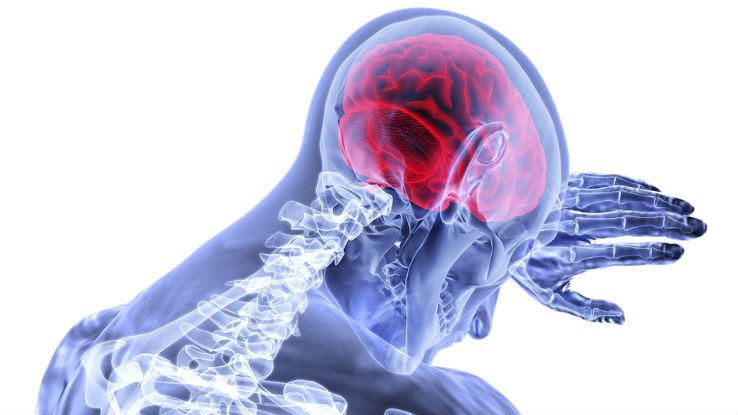
Neuroscientists say humans actually have about 15 more senses than they technically recognize and understand. How is that possible? Well, when you think about it, it makes perfect sense. They are including things like chronoception (the feeling of passing time), nociception (the ability to feel pain) and equilibrioception (the sense of balance).
Source: https://www.reference.com/world-view/popular-facts-that-arent-actually-true?utm_content=params%3Ao%3D740005%26ad%3DdirN%26qo%3DserpIndex&ueid=78789c6a-ddc3-482f-8edf-d73447905220
Enregistrer un commentaire for "Do if Statements Continue Evaluating After Finding True"